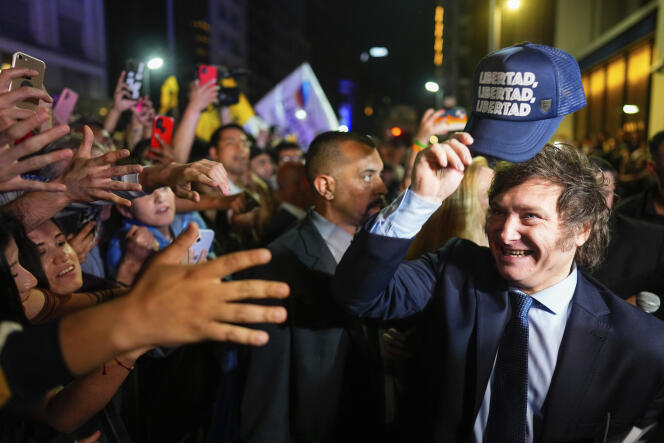


They go to high school or university, they live off of odd jobs, make an "L" for "Liberty" sign with their fingers and have an idol: Javier Milei. The ultra-liberal candidate, who will face Peronist Sergio Massa in the second round of Argentina's presidential election on November 19, only entered politics three years ago, but had long been followed on social media by devotees of libertarianism, a hitherto very marginal school of thought.
These 15- to 25-year-olds have their influencers – Alvaro Zicarelli, Tipito Enojado ("angry little guy"), and Lilia Lemoine (a cosplayer and recently-elected MP), among others – and made a name for themselves during the six-month 2020 lockdown in the Buenos Aires metropolitan area, when they called for civil disobedience in the name of freedom. At the time, Milei was still just a controversial economist whose rants were often posted on TikTok, such as when he compared COVID-19-related restrictions to a crime against humanity.
"There are several currents of libertarianism," explained Alvaro Zicarelli, Milei's former foreign affairs advisor (although he has recently distanced himself from him) and the author of Cómo derrotar al neoprogresismo: Una batalla política ("How to Defeat Neoprogressivism: A political battle"). "Milei draws his inspiration from the economists of the Austrian school, who reject state intervention, and from the American Murray Rothbard, the theoretician of anarcho-capitalism and paleo-libertarianism," which connects economic liberalism to social conservatism, a credo which was later taken up in the United States by the Tea Party and then by Donald Trump. Rothbard believed, for example, that children are the property of their parents and should be able to be bought or sold. "But Milei is a minarchist [a current that advocates for a minimal state] out of pragmatism," Zicarelli clarified.
Young Argentinian libertarians rally behind the Gadsden flag – a symbol dating back to the American Revolution which was taken up by the Trumpists who led the assault on the Capitol in Washington, DC on January 6, 2021 – on which a rattlesnake proclaims, "Don't tread on me." They also follow new young right-wing thinkers, and even far-right ones. These latter believe that the left has won the "cultural battle" by banning all conservative expression and by monopolizing the cinema, publishing and streaming platform markets – and that these spaces must be reconquered.
Best-sellers have been published, such as El Libro Negro de la Nueva Izquierda: Ideología de género o subversión cultural ("The Black Book of the New Left: Gender ideology or cultural subversion"), by Agustin Laje and Nicolas Marquez. Their authors tour Latin America, becoming stars outside of traditional TV channels, at a time when the "green tide" of feminism and its fight for abortion rights has been spreading across the region.
You have 65% of this article left to read. The rest is for subscribers only.
